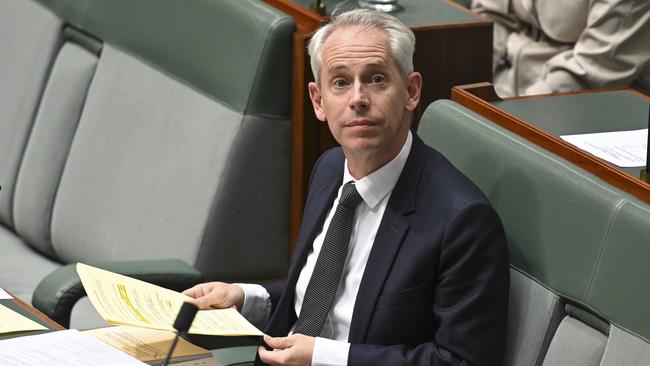More detainees to lodge legal bids for freedom after NZYQ
Legal experts says dozens more non-citizens could be released into the community under the NZYQ ruling, amid warnings detainees could be owed thousands of dollars.

A leading human rights lawyer says the Albanese government could be facing dozens of new legal challenges from immigration detainees pushing for their release under the NZYQ ruling, amid warnings the non-citizens could be owed hundreds of dollars in damages for each day spent behind bars.
Human Rights for All director principal Alison Battisson, whose organisation is representing about 15 non-citizens with unlawful imprisonment claims following the High Court decision, said many of the 883 people currently in immigration detention could still have grounds to launch a legal bid for their release.
The nation’s courts are grappling with a wave of cases stemming from the landmark ruling, including unlawful imprisonment applications, challenges to visa monitoring conditions and damages claims, which could see non-citizens awarded hundreds of thousands of dollars for lengthy periods of incarceration.
The Australian revealed Federal Court Chief Justice Debra Mortimer had established a specialist panel of nine judges to review cases related to the “increasingly complex situation” facing the court, amid a “high volume” of NZYQ related matters, with 25 legal challenges already being lodged.
As the legal sector braces for more turmoil in the migration system, Ms Battisson said almost all of the 59 Iranian and 29 Sudanese nationals, and many of the 35 Sri Lankans, 27 Chinese and 24 Iraqis in immigration detention could still launch legal bids for their release, after indefinite incarceration was found to be unconstitutional in November.
She said there were still many non-citizens in immigration detention who fell within the NZYQ cohort, but the federal government tended to take a “conservative view” on releasing the individuals before legal intervention.
“So we are still seeing people who, once we’ve identified them to the department and made a bit of a fuss, they’re released without going to court,” she said.
“And then we’re seeing people that we have to go to court for, and then they’re being released.
“But we’re also seeing a bit of a push back where it’s clear the department is very hesitant to release anyone else, even when it’s clear that they meet the requirements of NZYQ.”
This included a case she successfully argued against the federal government in April, where the Family Federal and Circuit Court ordered that an Iranian man, known as GMZ18, should be released from immigration detention following a wrongful imprisonment, or habeas corpus claim.
The member of Iran’s largest non-Muslim minority, the Bahá‘í, arrived in Australia in 2006 on a prospective marriage visa, which was cancelled after he was convicted of manufacturing an indictable quantity of a prohibited drug and exposing a child to prohibited drugs, and sentenced to four years and six months in prison.
The federal government invited GMZ18 to apply for a protection visa two days before the decision was handed down.
Ms Battisson said in some cases the government was seeking to delay the final decision on granting a humanitarian visa, even though a finding had already been made that protection was owed.
She said it was difficult to calculate the sum of potential damages claims factoring in the detention itself, the impact on the individual, loss of income and any physical or mental suffering, though these cases could attract large figures. She said one case she argued netted about $350,000 for 18 months of wrongful imprisonment.
Australian Lawyers Alliance spokesman and personal injury specialist Tony Kerin said it was difficult to determine the damages claim a particular case could attract without knowing the specifics, but each day could be worth hundreds of dollars. This means payouts could reach hundreds of thousands in cases where a person had spent years in custody.
“You might see a fairly wide range, but from hundreds of dollars a day through to maybe a thousand or two per day, depending on circumstances,” he said.
“But certainly if it’s any lengthy period of time, then the damages will be sizeable.”
Mr Kerin said there were still many pending legal challenges resulting from NZYQ, following decades of “turmoil and litigation” in migration law. He said some challenges will have been curtailed after the government won its case against an Iranian man, ASF17, who had argued for his release because he could not be deported because he was not co-operating with authorities.
“It’s not the end of the story by any means, and there are still some who can benefit from the November decision, but a lot of potential claims would have been diminished because of the subsequent (ASF17) decision,” he said.
“So I guess we’ve got to wait and see what happens with the others.”






